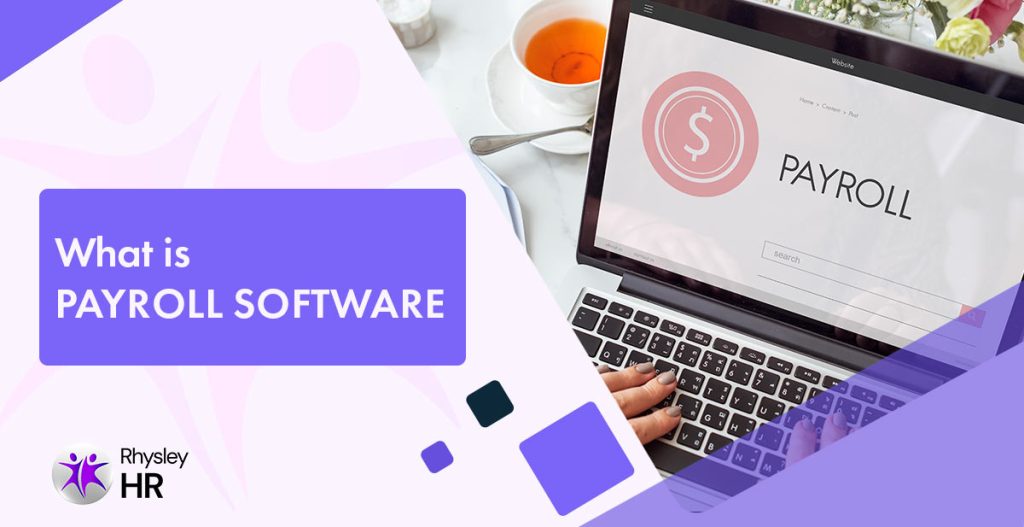Explore all premium features with a 1-Year Free Trial. Schedule your demo NOW!

What is payroll software: A comprehensive Guide
Managing the complexities of employee compensation can drain valuable time and resources from your business operations. Enter payroll software which is a technological solution designed to alleviate this administrative burden. Whether you’re launching a startup or managing an established enterprise, implementing specialized payroll technology can fundamentally transform your approach to workforce compensation management.
This guide explores the fundamentals of payroll software, its operational mechanisms, and the significant advantages it provides. We’ll also examine why businesses of all sizes are increasingly adopting these digital solutions to enhance their financial processes.
Understanding Payroll Software
Payroll software refers to specialized applications designed to automate and streamline the employee payment process. These systems handle calculations for wages, taxes, benefit deductions, and various contributions while ensuring timely disbursement through direct deposits or physical checks. Beyond basic payment processing, these platforms generate comprehensive reports and manage tax documentation, serving as a crucial bridge between your human resources and financial departments.
How These Systems Function
The primary purpose of payroll platforms is to simplify employee compensation management. Here’s a breakdown of the typical workflow:
Personnel Information Management
The process begins with entering or importing essential employee data, including personal details, compensation rates, tax information, and time worked.
Calculation Automation
The system automatically computes total earnings, tax withholdings, insurance and retirement contributions, and final take-home pay.
Disbursement Processing
Payments are distributed through electronic transfers or printed checks according to your established schedule.
Tax Management
The software generates required tax forms (like W-2s), submits filings to appropriate government agencies, and maintains comprehensive records for potential audits.
Analytics and Reporting
Users can generate detailed analyses covering payment history, tax submissions, and other essential financial metrics.
Contemporary payroll solutions typically operate through cloud-based infrastructure, enabling remote access and seamless integration with complementary business tools such as attendance tracking and human resource management systems.
Advantages of Implementing Payroll Software
Adopting specialized payroll technology offers numerous benefits, particularly for growing organizations:
Enhanced Efficiency
Manually processing payroll can consume hours of valuable time. Automated systems reduce this to minutes, freeing staff for more strategic activities.
Improved Accuracy
The software eliminates common calculation errors, ensuring employees receive correct compensation on schedule.
Regulatory Compliance
With constantly evolving tax regulations, these systems automatically incorporate the latest legal requirements, keeping your business aligned with current compliance standards.
Financial Efficiency
For smaller organizations, the cost of outsourcing payroll functions can be substantial. Investing in appropriate software offers a more economical alternative.
Data Protection
Given the sensitive nature of payroll information, quality platforms provide robust security measures including encryption, controlled access, and secure storage protocols.
Employee Accessibility
Many modern systems feature self-service portals where team members can access pay statements, update personal information, and retrieve tax documents—reducing administrative workload.
Leading Payroll Solutions for Small Enterprises
When searching for optimal payroll software for smaller businesses, consider these highly-rated options:
Gusto
User-friendly with integrated HR capabilities, ideal for new ventures.
QuickBooks Payroll
Particularly beneficial for businesses already utilizing QuickBooks accounting.
ADP RUN
Adaptable solution suitable for small to medium-sized operations.
Paychex Flex
Comprehensive platform combining payroll processing, human resources, and benefits administration.
Wave Payroll
Economical and straightforward, perfect for micro-businesses and small teams.
Each of these platforms provides cloud accessibility, mobile functionality, and automated features designed to minimize administrative complexity.
The Cloud-Based Revolution in Payroll Management
Traditional desktop applications can restrict flexibility and team collaboration. Cloud-based payroll solutions offer distinct advantages:
Universal Accessibility
Manage payroll functions from any location using internet-connected devices.
Immediate Updates
Tax law changes and software enhancements are applied automatically without user intervention.
Information Security
Payroll data receives automatic backup protection in secure cloud environments.
Expandability
Systems easily accommodate additional users or services as your organization grows.
Technical Simplicity
Eliminates the need for local installations or manual update processes.
For contemporary businesses, cloud-based payroll infrastructure provides the essential flexibility and security required in today’s digital workplace environment.
Conclusion
Payroll administration represents one of the most critical—yet challenging—aspects of business operations. Investing in appropriate payroll management software ensures precision, enhances operational efficiency, and maintains regulatory compliance. Regardless of your organization’s size, implementing specialized payroll technology can streamline workflows and reclaim valuable time for core business activities.
Common Questions
What exactly is payroll software and how does it operate?
Payroll software automates the employee payment process, handling everything from wage calculations to tax deductions and direct deposits. It functions by processing employee information according to current tax regulations to ensure accurate and compliant payroll management.
What fundamental capabilities should quality payroll software include?
Essential features include automated payment calculations, tax filing capabilities, direct deposit functionality, comprehensive reporting, employee self-service access, and compliance monitoring tools.
Is payroll software appropriate for smaller businesses?
Absolutely! Many solutions are specifically designed with small business needs in mind, offering affordability, user-friendly interfaces, and scalability as your organization grows.
What advantages do cloud-based payroll solutions provide?
Cloud-based systems offer location-independent access, instant updates, automatic data backups, reduced technology costs, and enhanced information security.